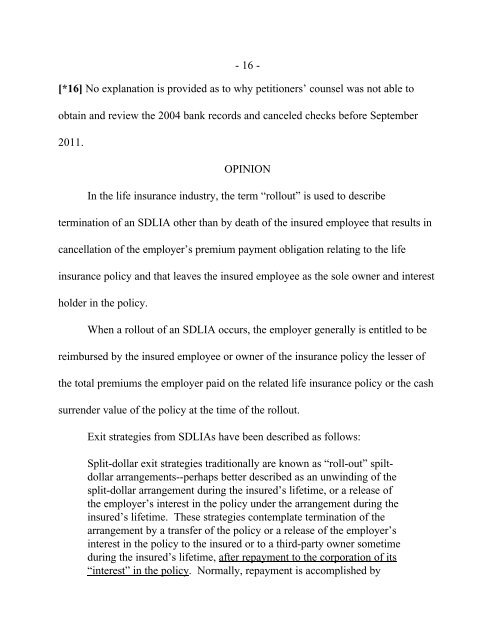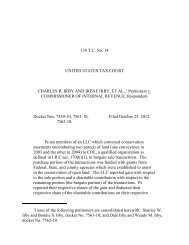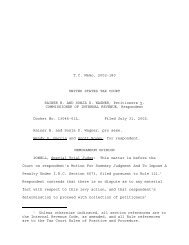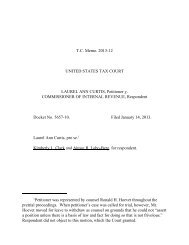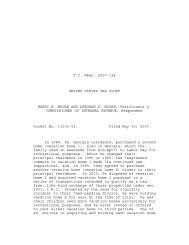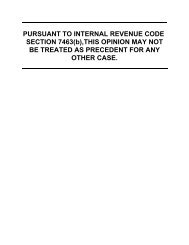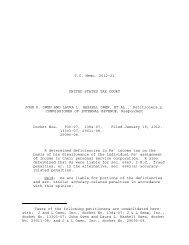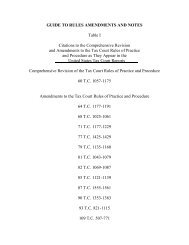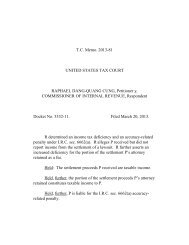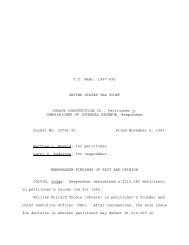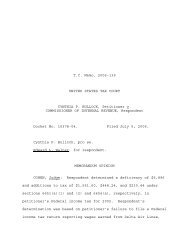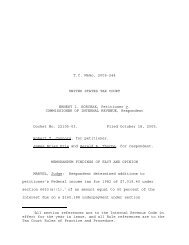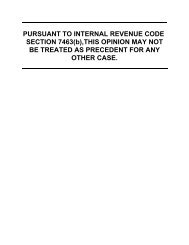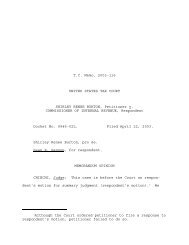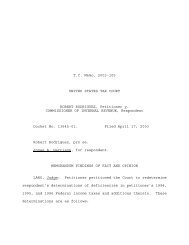TC Memo. 2012-244 - U.S. Tax Court
TC Memo. 2012-244 - U.S. Tax Court
TC Memo. 2012-244 - U.S. Tax Court
You also want an ePaper? Increase the reach of your titles
YUMPU automatically turns print PDFs into web optimized ePapers that Google loves.
- 16 -<br />
[*16] No explanation is provided as to why petitioners’ counsel was not able to<br />
obtain and review the 2004 bank records and canceled checks before September<br />
2011.<br />
OPINION<br />
In the life insurance industry, the term “rollout” is used to describe<br />
termination of an SDLIA other than by death of the insured employee that results in<br />
cancellation of the employer’s premium payment obligation relating to the life<br />
insurance policy and that leaves the insured employee as the sole owner and interest<br />
holder in the policy.<br />
When a rollout of an SDLIA occurs, the employer generally is entitled to be<br />
reimbursed by the insured employee or owner of the insurance policy the lesser of<br />
the total premiums the employer paid on the related life insurance policy or the cash<br />
surrender value of the policy at the time of the rollout.<br />
Exit strategies from SDLIAs have been described as follows:<br />
Split-dollar exit strategies traditionally are known as “roll-out” spiltdollar<br />
arrangements--perhaps better described as an unwinding of the<br />
split-dollar arrangement during the insured’s lifetime, or a release of<br />
the employer’s interest in the policy under the arrangement during the<br />
insured’s lifetime. These strategies contemplate termination of the<br />
arrangement by a transfer of the policy or a release of the employer’s<br />
interest in the policy to the insured or to a third-party owner sometime<br />
during the insured’s lifetime, after repayment to the corporation of its<br />
“interest” in the policy. Normally, repayment is accomplished by


